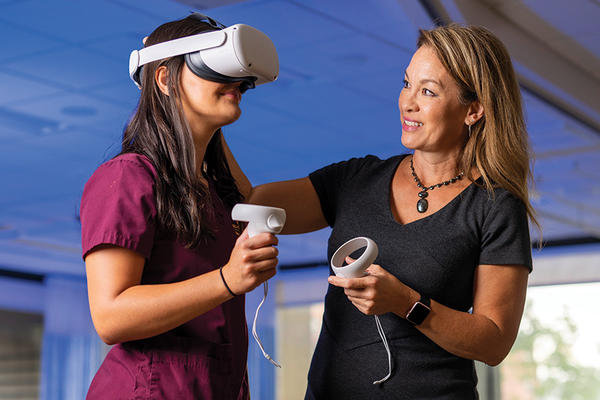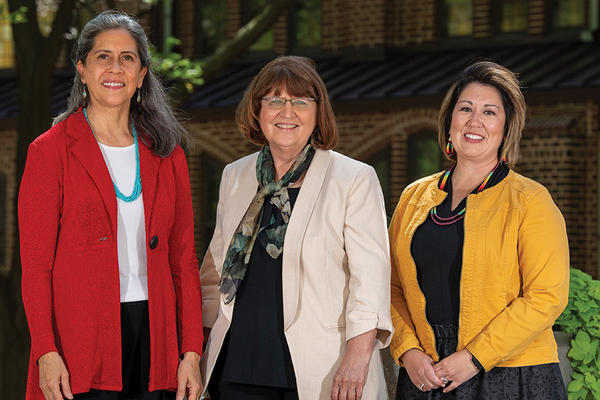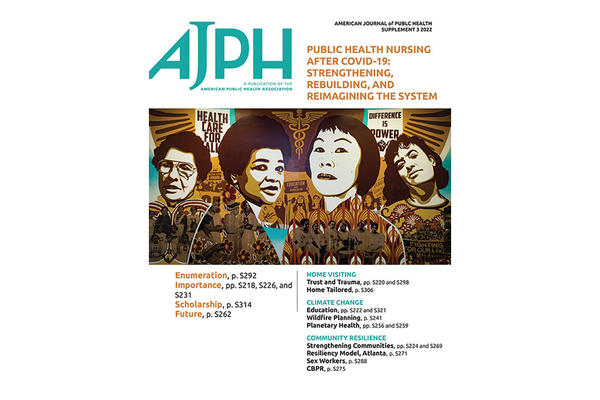Pursuing better HIV outcomes
PhD candidate Charles Osingada is studying the potential of telehealth to enhance HIV care in Uganda
October 25, 2022
Susan Maas
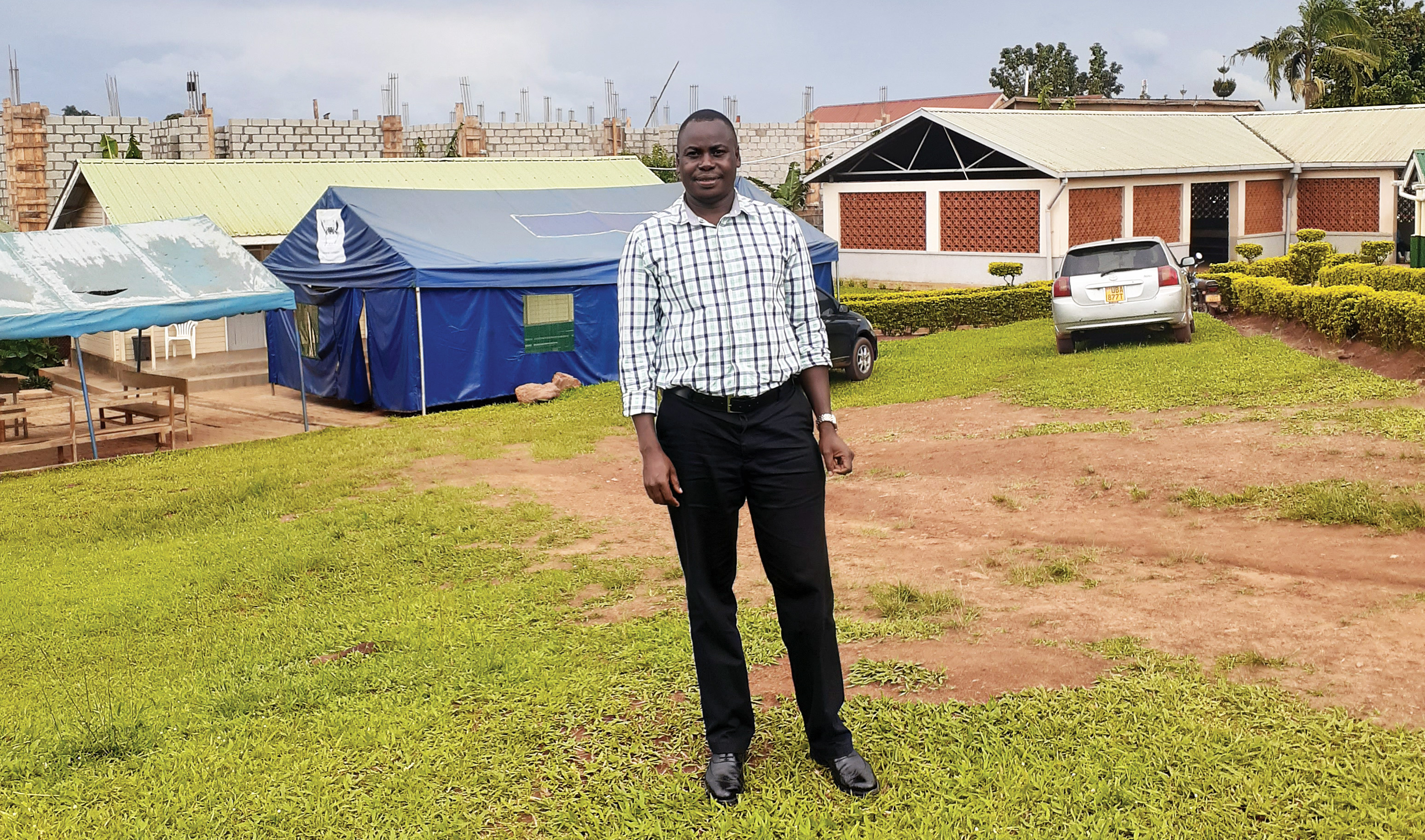
Charles Osingada, after a focus group discussion with HIV counselors to explore their perceptions about the use of telehealth for follow-up HIV care at Kitebi Health Centre, Kampala, Uganda.
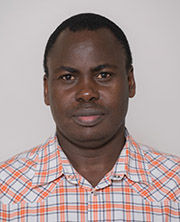
PhD student and Fogarty Global Health Fellow Charles Osingada remembers attending the rural funeral of a relative around 2000, when he had just completed his bachelor’s degree in nursing at Makerere University in Kampala, Uganda.
“I went home for a burial, and as I listened to people talking about the disease and how he struggled, I noticed that nobody was saying exactly what killed him. Even the children did not say anything about what killed their father,” Osingada recalls. “I asked around, and I was informed that he died of an HIV-related illness.” He suspected the stigma and silence around his relative’s diagnosis may have shortened his relative’s life.
“It made me think, how many such families existed in Uganda? How many people tried to avoid talking about this issue” – with likely implications for treatment and prognosis? “I wanted to understand, how big was this problem in Uganda, and in the region?”
Osingada combed the existing literature and found that no one was studying parents’ disclosure of HIV positive status to their children. That lack of knowledge, he realized, had implications for patient outcomes. “Number one, people are not able to openly seek treatment,” says Osingada. “And it affects even those who are receiving treatment, because they are hiding, and probably cannot adhere to their medication, and they may be suffering psychological issues because of the distress that comes with keeping HIV status a secret.”
That experience helped set the course for Osingada’s career.
Pursuing better HIV outcomes
Osingada knew from childhood that he wanted to work in health. After attending nursing school, he continued his education with a master’s degree in bioethics from Case Western University in Cleveland in 2005.
He returned to Kampala, lecturing, treating patients, and completing administrative work, before the research bug led him to apply for master’s degree program in public health at Makerere. “There wasn’t a lot of research being conducted by nurses in Uganda,” says Osingada. “There were not many role models to look up to.”
As his interest in community health and public health nursing grew, Osingada completed a one-year global health fellowship through Afya Bora Consortium Fellowship in Global Health Leadership, a partnership of eight academic centers in Africa and the U.S. During that program, Osingada wrote a proposal that was ultimately funded, a moment he calls “a giant step” in his career. The title of the proposal was Parental Disclosure of their HIV status to their Children: Prevalence, Associated Factors and Parents’ Experiences.
Osingada built on that research in 2017 with a NURTURE (Research Training and mentoring program for career development of faculty at Makerere University College of Health Sciences) Fellowship. The project aimed at examining men’s perceptions and willingness to participate in HIV testing services offered at venues telecasting European football games in Kumi district, Uganda. He surveyed men gathered in bars to watch soccer matches on television about their willingness to be tested “and what would need to be put in place for that to be successful,” Osingada says. “I did focus group discussions, collecting their views about conducting HIV testing in those kinds of venues, where men come to watch football.
“They were very open to the idea,” he says. “Men did not want to encounter health care workers from their local community ... again, stigma.” However, he found promise in offering testing and treatment in locations away from home, with health workers who don’t personally know the patients.
Meeting Professor Carolyn Porta, PhD, RN, FAAN, FNAP, in Kampala in 2017 piqued Osingada’s interest in the University of Minnesota. He began at the University in 2019, with Porta as his adviser. She encouraged him to apply for the Fogarty Global Health research fellowship in 2020 and helped review his application package. Osingada was awarded the Fogarty fellowship in 2021; he’s one of seven trainees with research projects in Uganda.
‘Take advantage of what’s before us’
For the fellowship and his PhD dissertation Osingada is studying the potential of telehealth to enhance HIV care in Uganda. He’s spent the past six months interviewing and working with both patients and health care workers in his home country. Osingada also was awarded a U of M Doctoral Dissertation Fellowship – from a pool of 200 applicants across the University – to help complete the project and his PhD.
Osingada’s idea coincided with COVID-19, which spurred greater investment in internet technology in many African countries. “I saw that we are probably not going to go back to pre-pandemic times,” he says. “So I thought, we can take advantage of what is before us and improve on the delivery of services to clients living with HIV in developing countries.” He hopes to complete the project by spring 2023.
There’s another reason Osingada has remained passionate about improving outcomes for patients with HIV. “I have a sister who has lived with the disease for more than 10 years. I have seen how she’s struggled; I’ve seen her life change,” he says. “I’ve seen her be able to bring up her children because she is adhering to her treatment. We would have lost her a long, long time ago otherwise. I have seen her live long because of the support we give her. It informs my interest in making sure that people with HIV access and remain on treatment.”
